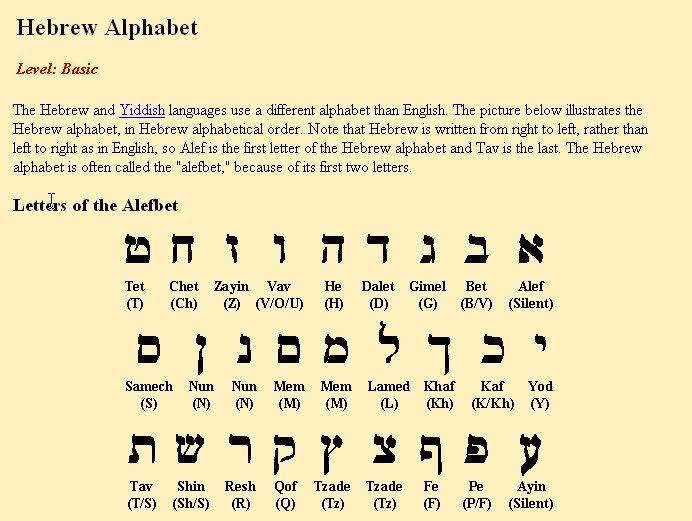אנכי יהוה אלהים יהיה***את

I would like to extend an invite to everyone:
"Purim: A Celebration of Victory Over the Pagan “gods” " today.
Purim The minor festival (on which it is permitted to work, unlike on the major festivals) which falls on 14 Adar. Purim is celebrated in commemoration of the deliverance of the Jews from the designs of Haman who cast lots in order to determine the date of their destruction, as related in the book of Esther: ‘For Haman son of Hammedatha the Agagite, the foe of all the Jews, had plotted to destroy the Jews, and had cast pur—that is, the lot—with intent to crush and exterminate them. … For that reason these days were called Purim, after pur’ (Esther 9: 24–6). Modern biblical scholars (see BIBLICAL CRITICISM) have questioned the historicity of the events told in the book of Esther and have tried to discover the origins of Purim in a Babylonian festival, later adapted by Jews. But there is evidence that Jews celebrated Purim as early as the first century BCE. Classical Reform Judaism tended to look askance at the festival of Purim both because of the lack of evidence that the events really happened and because the festival was seen as too nationalistic and vindictive for Western taste. Orthodox, Conservative, and now some Reform Jews do celebrate Purim, as representing God's deliverances through the ages.
The central feature of Purim is the reading of the Megillah (‘Scroll’), as the book of Esther is called, on the night of Purim and on the next morning. Although the Megillah is normally read on these two occasions during the synagogue service, where synagogue attendance is not possible it can be read in the home.
Since the book of Esther speaks of sending portions to friends and gifts to the poor on Purim (Esther 9: 22), the rule, as stated in the Talmud (tractate Megillah is devoted to the laws of Purim), is that each person must send a gift of at least two items of food to a friend (some, today, prefer to send books instead) and give at least one donation to two poor men. From the reference to ‘days of feasting and joy’ (Esther 9: 17) the Talmudic Rabbis ordained that a special Purim meal be partaken of in the home, at which much wine is imbibed. The Talmudic statement in this connection (Megillah 7b) that a man is obliged to become so drunk on Purim that he is no longer aware whether he is blessing Mordecai or cursing Haman, is still taken literally by some ultra-Orthodox Jews, although many Rabbis understand it as hyperbole and advise against taking drinking to the extreme of drunkenness, even on Purim.
Undoubtedly influenced by the Italian carnival, people dress up and, children especially, perform Purim plays in which they take on the characters mentioned in the Megillah. In learned circles, it is often the practice to give fanciful interpretations of the Bible and Talmud and frivolously manipulate sacred texts. Scholars have seen in this ‘Purim Torah’, as it is called, a means of obtaining psychological relief, on one day in the year, from what otherwise might have become a burden too hard to bear.
Work Cited
"Purim" A Concise Companion to the Jewish Religion. Louis Jacobs. Oxford University Press, 1999. Oxford Reference Online. Oxford University Press. Pellissippi State Technical CC. 18 April 2010
To see more details and RSVP, follow the link below and join Facebook:
http://www.facebook.com/
-Janice Coffey
Dear Friends in Messiah,
From:
http://www.DoublePortionInheritance.com/
Purim: A Celebration of Victory Over the Pagan “gods”
By Maria Merola
This year in 2010, the "Fast of Esther" begins (according to the Aviv Sighted Moon Calendar) on Sunday February 28th at sundown. Purim & Purim Shushan are on March 1st & 2nd 2010.
There is much controversy today in the body of Messiah with regard to the Feasts commanded by YHWH in the Torah, and the extra Jewish celebrations that the Apostle Paul (Sha’ul) spoke about in Romans 14. Sha’ul/Paul suggested that there were certain fast days that were not considered mandatory according to the Torah but they were considered special days by the Jewish people (the House of Judah) wherein they chose to fast in remembrance of these victories that had been won on their behalf by YHWH himself. Christians often use Paul’s letter to the Romans to suggest that the Feasts Days of YHWH given to Israel in Leviticus 23 are merely “optional”, but this is not true. The Sabbaths and Feast Days given to Israel (to include grafted in Gentile believers) are to be observed “Forever, unto all generations in all your dwellings” (Leviticus 23:14-21).
The Apostle Shaul/Paul would never have contradicted the word of YHWH by telling the believers in Rome that the Sabbaths and the Feasts were merely optional. He was not giving them permission to celebrate pagan sun god celebrations either. So what was Paul talking about?
The entire Chapter of Romans 14 is about “food” and his letter is addressing the Jewish believers in Rome and their conduct with newly converted Gentiles into the faith. It becomes quite apparent that his statement below is specifically about “fasting”:
Romans 14:3 Let not him that eateth despise him that eateth not; and let not him which eateth not judge him that eateth: for God hath received him.
We must understand that Romans Chapter 14 is a correction about eating habits of two groups within the congregation of Rome that are bringing conflict to one another. In staying with the food subject of this chapter, the only “day” that would have any relationship to the subject of food would be a “fast day” when one chooses not to eat food. In actuality, the whole chapter is about food and how some in the congregation had certain beliefs that incorporated “fast days” into their spiritual lives. The Apostle Shaul/Paul corrected both sides on their views on the subject of “fast days.”
The “day” that Shaul was referring to in this chapter would be one of the traditional Jewish “fast days” that the Jewish believers continued to keep, and the Gentile believers did not and probably did not understand why the Jews continued to do so. These “fast days” were not Torah commanded but were times of remembrance special to the House of Judah. They were times for the Jewish believers to remember their ancestors’ captivity in Babylon. Thus these times had no relevance or cultural interest to the Gentile believers in the same congregation. The “fast days” that Shaul was referring to were the House of Judah’s “fast days” found in Zechariah 7:5-6:
The fast day in the 4th month of the Jewish calendar was in remembrance of the destruction of the Wall of Yerusalem.
The fast day in the 5th month was in remembrance of the burning of the Great Temple in Yerusalem.
The fast day in the 7th month was in remembrance of the killing of Gedaliah which brought about their ancestors’ exile into the nations.
The fast day in the 10th month was in remembrance of the siege of Yerusalem.
In addition to these four fast days in Zechariah, there is also the “three fast days” of Esther followed by the Feast of Purim.
Paul is telling these Jewish believers in Rome not to judge the new converts who don’t observe the “fast days” but he is also commanding the Gentile believers not to judge the Jews for wanting to observe these fast days. Listen to what he says here:
Romans 14: 4-6
Who art thou that judgest another man's servant? to his own master he standeth or falleth. Yea, he shall be holden up: for God is able to make him stand.
One man esteemeth one day above another: another esteemeth every day alike. Let every man be fully persuaded in his own mind.
He that regardeth the day, regardeth it unto the Lord; and he that regardeth not the day, to the Lord he doth not regard it. He that eateth, eateth to the Lord, for he giveth God thanks; and he that eateth not, to the Lord he eateth not, and giveth God thanks.
One of these special “days” was the 3-day Fast of Esther followed by a celebration called “Purim” to commemorate the victory that the Jewish people won over their enemies in Persia. This is a special time of year for the Jewish people to remember the time when they were almost annihilated by Satan’s wicked schemes through King Ahasuerus’s right hand man, Haman. Many Jews use this time to celebrate by dressing up in festive costumes and they have a big party where they “boo” and “hiss” and stomp on the floor to demonstrate that Satan (Haman) is under our feet! Some who are in the Hebraic Roots Movement, condemn this celebration because there is no specific commandment to keep this feast in the Torah.
Certainly there is no commandment in Leviticus 23 to honor or observe these fast days and the Feast known as Purim, but I do believe that the book of Esther is just as much an inspired book as the five books of Moses known as “Torah.” Queen Esther was a mighty woman of valor and she was used mightily to save her own people, the House of Judah. Queen Esther’s real Hebrew name is Hadassah, and her decree to celebrate this day known as “Purim” was written in the inspired writings of the books of the Prophets, and I believe that her decree is honored by YHWH himself as he rejoices over us and with us when we win the victory over Satan! I recommend reading my other article entitled:
“The Feast of Purim, How Does it Point to Messiah?”
http://www.facebook.com/home.php?#!/note.php?note_id=57622577108&id=533905209&ref=nf





